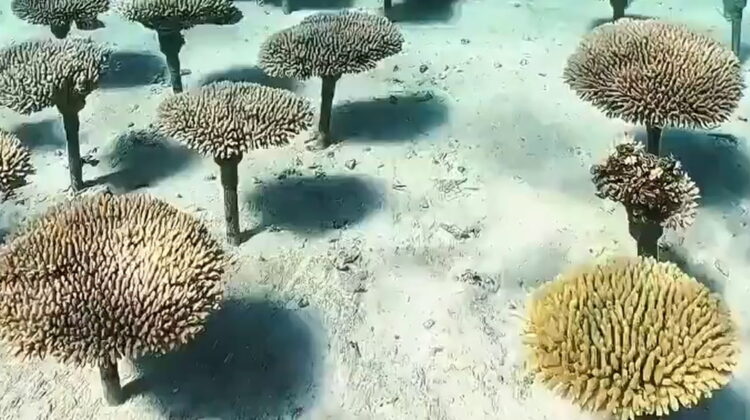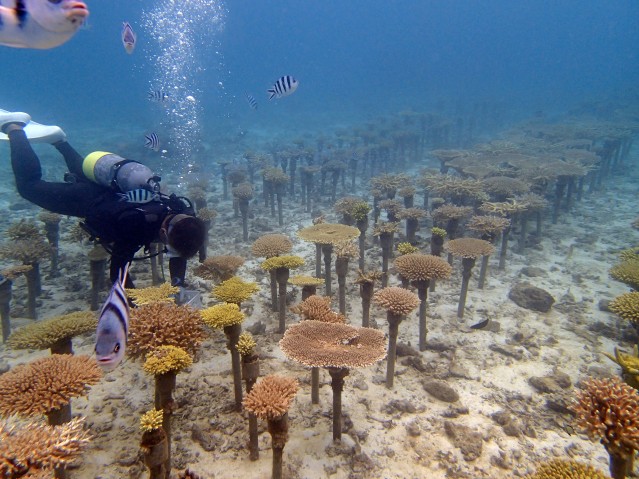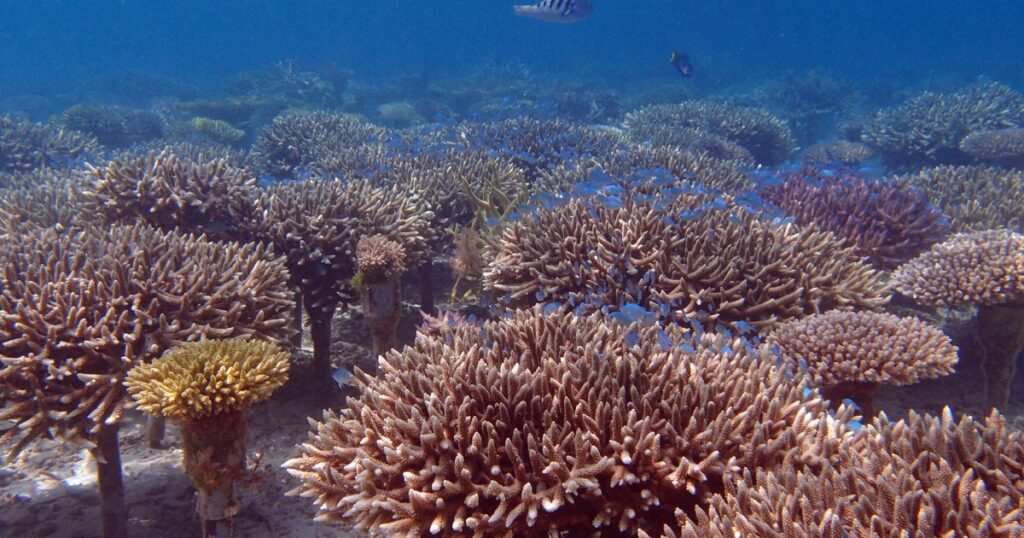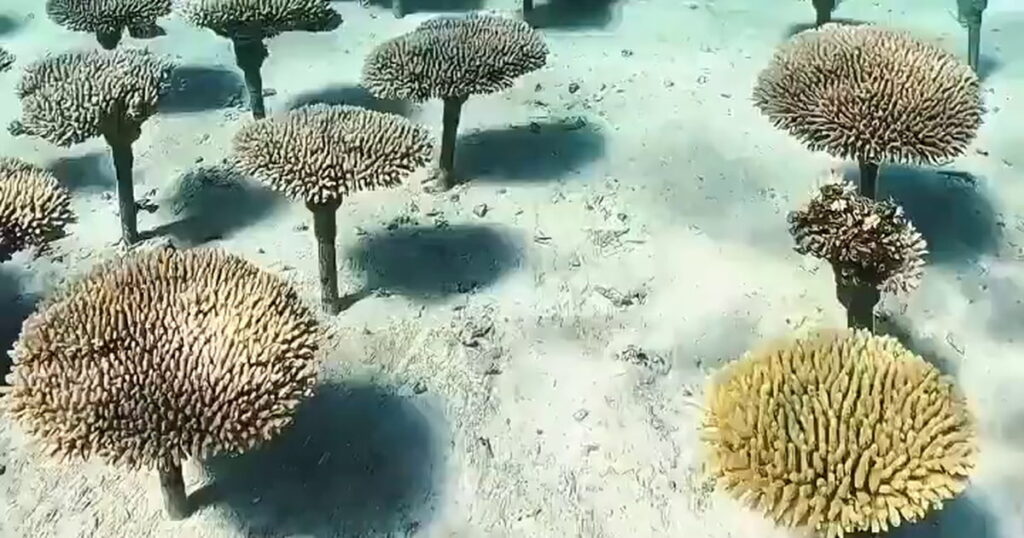
Coral reefs, the underwater wonders of the world, have been in peril. The rising sea temperatures, ocean acidification, and pollution have taken a toll on these delicate ecosystems. In Okinawa, a remarkable partnership has emerged to address this crisis.

Coastal fishermen in Okinawa have taken on the role of coral farmers, akin to planting trees to rejuvenate a damaged forest. They have formed the Onna Village Fisheries Cooperative and have been growing coral colonies on metal supports since 1998. This effort to restore coral reefs comes at a crucial time, with the decline of these essential ecosystems observed worldwide.

A recent study, co-authored by Dr. Yuna Zayasu of the Okinawa Institute of Science and Technology Graduate University (OIST) and the Atmosphere and Ocean Research Institute (AORI) at The University of Tokyo, has revealed the promise of these farmed corals. The research shows that the genetic diversity of the farmed corals is as high as that of their wild counterparts, which bodes well for their use in reef restoration.

Coral farming not only offers hope for the recovery of these precious ecosystems but also serves as a testament to the power of collaboration between different stakeholders. This partnership between fishermen and scientists demonstrates the potential for human intervention to combat the decline of coral reefs.
While reef restoration remains essential in mitigating the threats faced by these ecosystems, it is worth noting that the global challenges posed by climate change and other factors necessitate a broader, coordinated response. Nonetheless, the Okinawa initiative showcases a positive and proactive step towards conserving the world’s coral reefs.

Leave a Reply